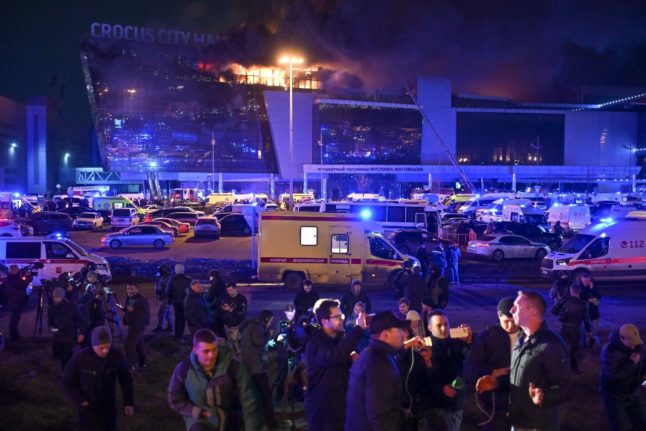Since the brutal terrorist attack on a Berlin Christmas Market back in December 2016, fears of Islamist terror seem to have receded into the background – through far-right terror has remained prevalent.
But the recent terror attack on a concert hall in Moscow, which has been attributed to a branch of IS, has heightened fears of a resurgence of Islamist violence.
In contrast to neighbouring countries, Germany doesn’t use a national terror alert system to ‘grade’ the threat of terror – but it does have another system for protecting its population and warning people.
Here’s what you need to know about Germany’s approach to tracking threats of terrorism.
How does Germany manage the threat of terror?
According to the Interior Ministry, rather than relying on a system of color-coded alert levels, German security authorities take a more decentralised approach.
The Federal Criminal Police Office regularly conducts assessments of terrorist threats, which are then shared with the leaders of the federal states. If there’s a significant increase in the overall risk assessment or a specific threat emerges, the government puts “appropriate security measures” in place, the Interior Ministry states.
Unlike centralised systems in countries like France, where national threat levels are analysed and shared with the public, security responsibilities in Germany are largely decentralised, resting with individual states.
Why doesn’t Germany use terror alert levels?
When it comes to using national terror alerts to alert citizens, the Interior Ministry remains sceptical, arguing that the threat level can vary significantly between regions and even within cities.
According to the Ministry, having uniform alert levels nationwide might give the false impression that the danger is uniform everywhere, which would lead to higher levels of panic and uncertainty among citizens.
READ ALSO: How prepared is Germany in the event of a military attack?
While alert levels could theoretically serve as a means to reach the population, ARD terrorism expert Michael Götschenberg points out that their effectiveness diminishes over time. People tend to become desensitised to frequent high alert levels, which causes people to ‘switch off’ and ultimately ignore potential threats.

One of the main factors that renders colour-coded alerts less useful is the fact that “the levels are not linked to specific rules of behaviour for the population”, Götschenberg told Tagesschau.
Austria, for example, raised its alert level last November but emphasised that the public didn’t need to alter their behaviour in any way. This reflects authorities’ belief that the best way to fight terrorism is for the population to show resilience and refuse to give into fear.
How high is the threat of terror attacks in Germany?
In the aftermath of the terrorist attack in Moscow, Interior Minister Nancy Faeser (SPD) has described the current threat of Islamist terror as “acute”.
However, the attack has not significantly changed the authorities’ perceptions of the situation. In fact, the threat was defined as acute before the latest attacks and remains so afterwards.
Several other countries, including the UK and the US, have already put out warnings for potential terrorist attacks to citizens who are considering travelling to Germany. In the UK, for example, the government cites recent attacks such as the shootings in Hanau shisha bars back in 2020 and the knife attack in Dresden the same year.
“Terrorists are very likely to try and carry out attacks in Germany,” states the official government advice, which adds that restaurants, markets, shopping centres and places of worship could be chosen for potential attacks.
So, how will the public be warned if a plans for a specific attack become known? As well as offering general information about terrorist threat levels, the government will also release specifics that it feels are necessary for the public safety.
For example, when the authorities suspected an attack was being planned in the area around Cologne cathedral ahead of Christmas last year, warnings were sent out to residents of the city.
On Tuesday, Faeser also revealed that she would put additional border controls in place during the European Football Championships in June and July this year.
READ ALSO: Germany announces border controls for European Football Championship
The focus will be on protecting the country from Islamists, political extremists and other violent criminals during the competition.
“We are keeping an eye on the current threats,” Faeser told the regional Rheinische Post.



 Please whitelist us to continue reading.
Please whitelist us to continue reading.
Member comments